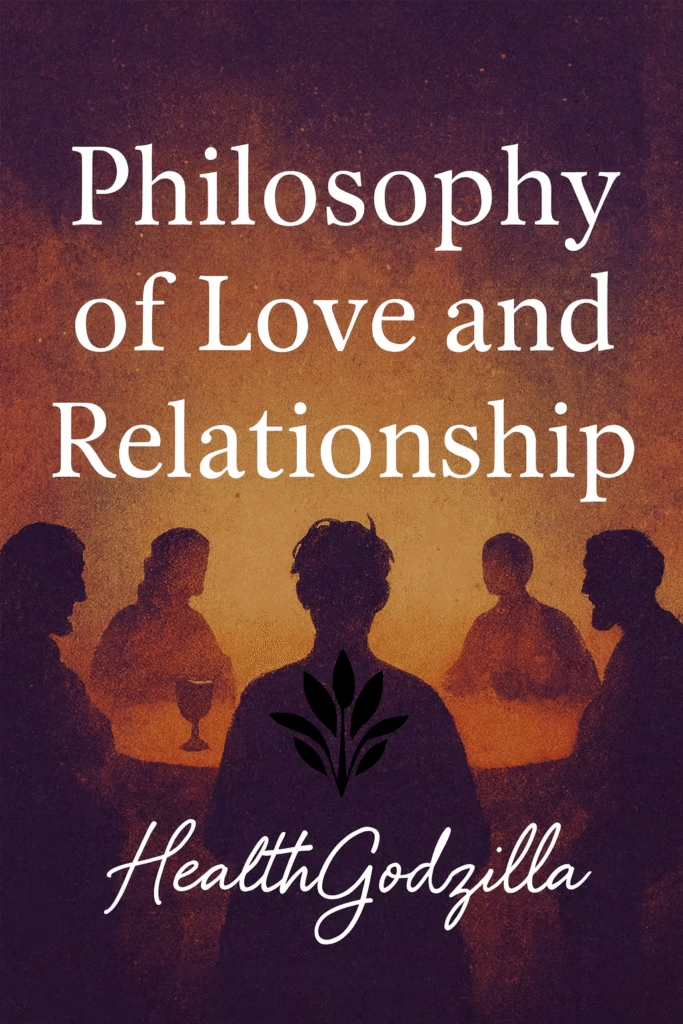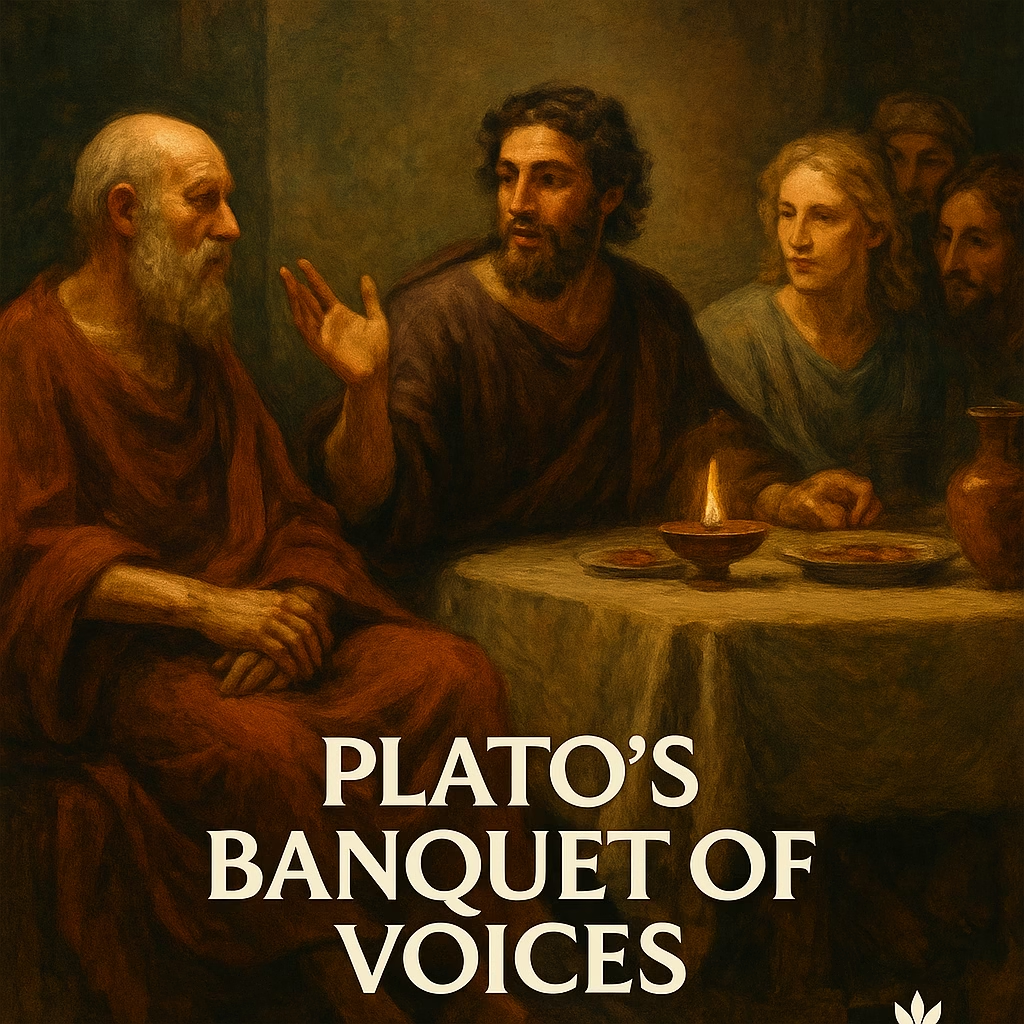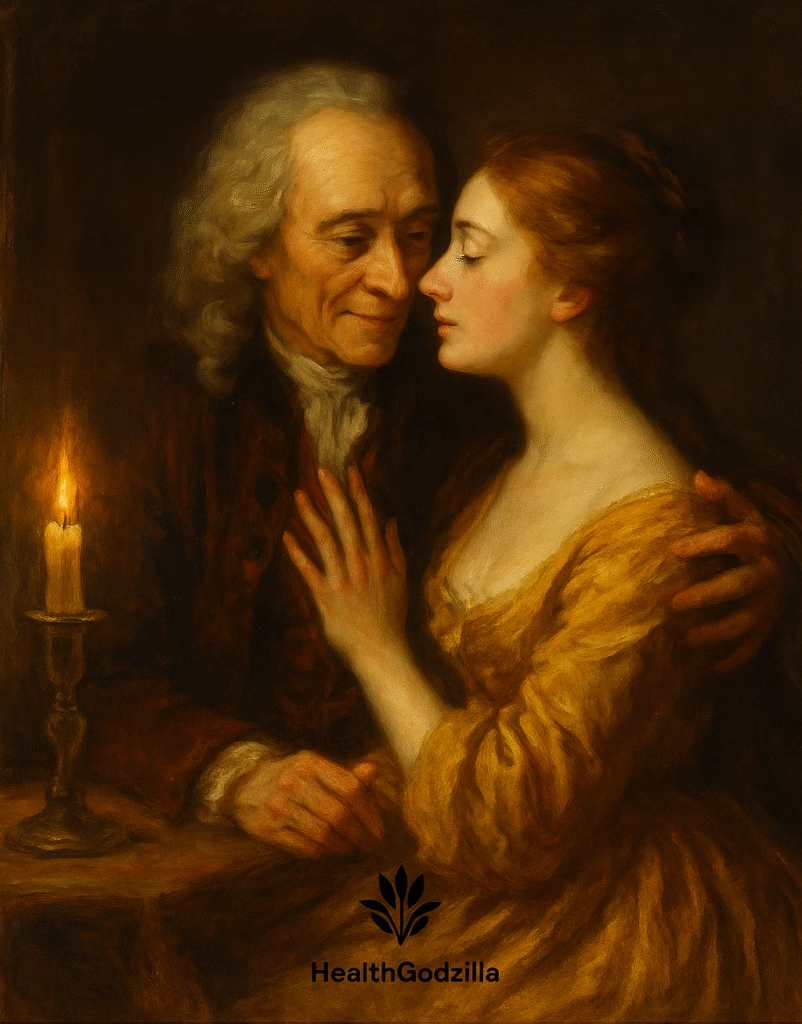
Prologue – The Fifth Voice Enters
I begin not with certainty, but with tremor.
A discovery has shaken me—not from books, but from within.
Indeed, it is perhaps where every philosophy of love and relationship must begin—not in peace, but in the quiver before understanding.
For I have realized that forgiveness is not a duty handed down by society, but rather something closer to clarity—
a sudden seeing that strips the soul bare.
For years, I thought myself bound to love someone because of responsibility, because of custom, and because of the weight of appearances.
However, only now I know—the bond was never real until clarity came; until seeing dissolved the hidden repent into air.
Therefore, what I once called forgiveness was only a kind of disguise.
Can a person forgive? Perhaps.
Yet for me, it feels more like compromise.
And still, the meaning of forgiveness—I do not yet understand.
Even so, I confess: I have lived among illusions.
Relationships came and went; nevertheless, I rarely saw them as they were.
I painted them with my brain, each one like an icon hung in my private chapel, mistaking imagination for truth.
Thus, when the paintings cracked, I mistook the breaking of my illusions for the breaking of love itself.
Consequently, this, I now see, is where every philosophy of love and relationship begins—not in certainty, but in the delicate ruin of what we thought love was.
After all, it is often the ruin that teaches us how to see.
Only two loves I know in their naked, undeniable form: my son—whose being is inseparable from mine—and Gulli—the lost dog who once walked beside me, who still walks in memory.
These are not philosophy; they are certainty.
Beyond them, all else feels borrowed—tender, perhaps, but transient.
So tonight, shaken, I call a council—not of kings or priests, but of those who have wrestled with love across centuries.
First, Francis Bacon—who measured love like a magistrate weighing guilt.
Then Plato—who staged love in a banquet where gods and drunkards spoke as one.
Next, Carol Dweck—who dissects the mind’s stories of love: fixed and brittle, or growing and forgiving.
Finally, Voltaire and Émilie—who dared to live love as scandal, intellect, passion, and danger.
And into their company, I enter—not as judge, not as guest, but as one who has been cracked open by compromise, by clarity, by tremor.
Therefore, I sit at their table, trembling but unashamed.
At last, the circle closes, and yet begins again.
Let the symposium begin.
Act I – The Courtroom of Bacon
The torches dim.
A gavel strikes.
And there stands Francis Bacon—lawyer, statesman, the cold surveyor of human passions. His essays are not letters of love but depositions, arranged like charges in a courtroom.
Love. Marriage. Friendship.
Each called to the stand.
Each weighed, sentenced, dismissed.
Love as Mischief and Weakness
To Bacon, love is no divine spark.
Instead, it is a disturbance—
a mischief, a fever in the blood.
Love weakens the judgment of men; therefore, it lures them from their work, bending reason toward folly.
Wise men, under its spell, act like children.
Even soldiers—once steadfast—turn from their duty.
In his eyes, love is not a ladder to heaven; rather, it is a chain to folly.
Thus, Bacon sees passion not as elevation but as entrapment.
Marriage as “Hostage to Fortune”
Marriage, too, he treats with suspicion.
Children. Wives. Families.
All are “hostages to fortune,” tying men’s hands.
Consequently, they become cautious, fearful, unable to act freely in affairs of state or ambition.
Indeed, marriage is less about love than about liability.
Bacon’s courtroom echoes with a warning:
family, while natural, is also a snare.
Friendship as the Alchemist’s Stone
Yet here Bacon softens.
On friendship, he writes with unexpected warmth.
For once, his tone bends toward tenderness.
True friendship, he says, is the philosopher’s stone—
transmuting sorrow into comfort, and joy into abundance.
Moreover, a friend divides grief in half and doubles delight.
After all, friendship, more than love or marriage, is what he esteems as the noblest bond—
the purest, most rational of human ties.
The Rational Scalpel of Love
In the end, Bacon’s love is carved open with a scalpel.
It is catalogued, measured, and reduced to its dangers and uses.
Therefore, his voice becomes that of the surgeon who saves by cutting,
the magistrate who protects by condemning.
Even so, to stand in Bacon’s courtroom is to be warned:
Do not kneel to love as to an idol—
lest you lose both reason and freedom.
Act II – Plato’s Banquet of Voices

The symposium begins.
Wine is poured, and words take on wings.
Here, love is not tried like a criminal—
rather, it is celebrated, questioned, and sung.
Phaedrus – Love as Nobility and Sacrifice
Love, says Phaedrus, is the oldest of gods—
the wellspring of courage, the forge of virtue.
Indeed, lovers would rather die than shame each other,
for in the beloved’s eyes, cowardice is unbearable.
Thus, love tempers dignity with fire and kindles the soul toward valor.
Aristophanes – The Comic Myth of Wholeness
Meanwhile, Aristophanes hiccups and smiles.
Once, he says, we were whole—
four arms, four legs, two faces.
However, in arrogance, we were split by Zeus.
Now we wander, each half aching for its lost other.
Therefore, love becomes hunger for wholeness;
desire is the memory of being torn.
The hall roars with laughter—
yet the myth lingers like a wound, half-comic, half-sacred.
Agathon – Love as Beauty and Youth
Then Agathon rises, radiant.
To him, Love is delicate, tender—
the poet of gods and men.
Moreover, he hymns Love as the bringer of beauty,
a flower of eternal youth and grace.
His words shine like marble—
perfect, fragile, and fleeting as morning light.
Socrates and Diotima – The Ascent to Beauty
Soon after, Socrates speaks—
not for himself, but recalling Diotima.
She teaches that Love is no god but a daemon:
half mortal, half divine.
It is hunger—desire for what one does not yet have.
Through Love, the soul may climb:
from one body, to the beauty in all bodies,
to the beauty of minds, to the beauty of laws,
and finally, to knowledge itself.
Consequently, at last it beholds Beauty—
eternal, unchanging, beyond flesh.
For a moment, the wine tastes like nectar;
the banquet becomes a rite of revelation.
Alcibiades – Love Crashes the Feast
Suddenly, the doors burst open.
Alcibiades staggers in—ivy-crowned, drunk, and laughing too loudly.
He does not speak of Love; instead, he speaks of Socrates.
“This man bewitched me.
I sought his body—he denied me.
I cannot escape him.
He is like a satyr—ugly outside,
but within, statues of gods.”
Immediately, the hall erupts—laughter, shock, recognition.
Here, after nobility, myth, hymn, and mystery,
comes desire raw—comic, tragic, humiliating, divine.
A Cathedral of Voices, Cracked but Shining
Thus, Phaedrus gave love as courage.
Aristophanes gave love as loss.
Agathon gave love as beauty.
Diotima gave love as ascent.
And Alcibiades gave love as desire—broken, unashamed, eternal.
Together, they do not conclude.
Instead, they collide in thought, resound in memory,
and leave the banquet forever open.
As if Plato whispers still:
Love is never finished.
Act III – The Psychology of Mindset
The sages of old spoke of love as daemon, myth, ascent, and mischief.
However, Carol Dweck, through psychology, asks a simpler yet radical question:
What story do we tell ourselves about love?
Fixed vs. Growth Mindset in Love
In the fixed mindset, love is fate.
You are lovable or unlovable, chosen or rejected, blessed or cursed.
Thus, a breakup becomes a verdict, carved into the soul.
Rejection is not an event but an identity.
“I am worthless.” “I am doomed.”
Conversely, in the growth mindset, love is not a verdict—it is a lesson.
Relationships stumble, crack, and even end.
Nevertheless, each carries the possibility of learning.
Love, therefore, is not about proving worth once and for all.
Rather, it is about growing together, mending, and reshaping.
Indeed, this, too, is a kind of philosophy of love and relationship—
not written in marble, but in trial and tenderness,
where the heart studies what the mind resists.
Revenge, Bitterness vs. Forgiveness, Healing
In the fixed mindset, rejection breeds revenge.
Betrayal festers into bitterness,
and, like a wound never cleaned, it infects the whole spirit.
“I would get back at him any way I could,” confessed one spurned lover.
Here, love becomes war.
Yet in the growth mindset, even the wound carries possibility.
One man said, “I’m no saint, but for my own peace of mind, I had to forgive and forget.”
Thus, forgiveness here is not saintly—it is survival.
Healing, moreover, is not excusing the other; it is freeing oneself.
As the French say:
Tout comprendre, c’est tout pardonner.
To understand all is to forgive all.
Perhaps this, too, is where a deeper philosophy of love and relationship begins—
when the heart forgives not out of duty, but out of the instinct to live.
Love as Work, Not Fate
Sleeping Beauty has no place here.
For love is not “meant to be,” and therefore easy—it is work.
It demands communication, negotiation, and persistence.
Furthermore, the myth of effortless perfection belongs to the fixed mindset,
whereas the truth of ongoing labor belongs to the growth mindset.
Consequently, love is less a magic kiss than a shared apprenticeship—
the everyday craftsmanship of two minds learning to hold one another without ownership.
Such work is not against romance; instead, it is the living philosophy of love and relationship itself.
Nicole Contos – A Modern Myth of Resilience
Dweck offers a story fit for Aristophanes’ myth or Alcibiades’ confession—
yet it unfolds in modern New York.
Nicole Contos—abandoned by her groom on their wedding day.
Still, she refused humiliation.
Instead, she slipped into a black dress, filled the hall with friends, and danced to I Will Survive.
Her act was no denial of pain; rather, it was defiance.
She rewrote the story in real time, transforming rejection into resilience.
Therefore, she became a modern myth—
love as wound, yes,
but also love as courage to keep moving, keep growing, keep dancing.
And perhaps this is what the modern philosophy of love and relationship looks like—
not in temples or treatises, but on the dance floor,
where survival becomes grace, and grace becomes growth.
So the symposium grows louder.
Bacon warns, Plato intoxicates,
and Dweck interrupts with psychology’s scalpel:
Love is not fate. It is work. It is growth.
And yet, long before New York’s dance halls, love’s daring philosophers were already rewriting the story—Voltaire and Émilie, setting reason on fire.
Act IV – Voltaire and Émilie: Love Embodied

Not all philosophies hide in books.
Some stride into salons with powdered wigs askew, ink-stained fingers waving, and scandal chasing at their heels.
Indeed, Voltaire and Émilie du Châtelet did not simply write of love—they lived it, until Paris gossiped and Cirey glowed like a forge.
Angels and Scandals
Their beginning felt like comedy staged by gods.
One evening in 1733, Voltaire joked that three angels had visited him: two lovers for chaperones, and one radiant Marquise—the woman who would upend his life.
Paris tittered, of course, yet behind the laughter rose something no satire could extinguish: a partnership of intellect and flame.
Émilie, brilliant and insatiable, devoured algebra by night and courtiers by day.
Meanwhile, Voltaire, fugitive of both censors and creditors, found in her an accomplice, a rival, and a mirror.
Together they transformed Cirey into a workshop of the Enlightenment—part boudoir, part laboratory—where Newton’s laws were whispered between kisses and scandal brewed stronger than morning coffee.
Richelieu’s Wedding and the Lettres
Their love was never private; rather, it tangled itself in history’s grand web.
In 1734, Voltaire, pale from illness, still rose to arrange the wedding of his rakish friend Richelieu.
The Duc, a walking opera of duels and affairs, inspired Voltaire to advise the bride:
“Do not love him too much, and you may love him forever.”
However, that same year, Voltaire’s Lettres philosophiques set France ablaze like contraband fire.
England was praised, France mocked; Newton exalted, Descartes dethroned.
Copies flew across Paris; the Crown thundered; his publisher jailed.
Therefore, Voltaire fled Montjeu like a thief of forbidden knowledge.
Philosophy, by then, was no longer a parlor game—it had become blood sport.
Duels and Defiance
Later, at Philippsburg, cannons thundered as Richelieu fought a duel under falling shells, killed a prince, and limped off laughing.
Soldiers roared while philosophers despaired.
Yet for Voltaire and Émilie, love meant living in this storm—scandal in one pocket, manuscripts in the other, and passion smoldering through it all.
Thus, even in chaos, their minds and hearts refused to retreat.
Lunéville: The Bright Room and the Black Door
By 1749, time had etched its lessons upon their bond.
Émilie, now carrying Saint-Lambert’s child, faced the danger of late pregnancy.
Voltaire, nervous yet devoted, still belonged wholly to her.
Often he quarreled with palace officials over bread, wine, and candles.
He once compared himself to Virgil at Augustus’s table—only to be silenced by Alliot’s sharp reply:
“Virgil fed kings; you only beg for necessities.”
For once, Voltaire had no retort.
Then, joy arrived—a daughter born quick as a sigh.
Voltaire’s letters blazed with relief:
“Easier for her to have a child than for me to write a play.”
For a few days, laughter and sunlight returned to Lunéville.
However, soon after, fever struck.
An iced almond drink, beloved yet forbidden, proved fatal.
A night of restless breathing followed—doctors called, prayers whispered.
Voltaire and the Marquis supped elsewhere; Saint-Lambert kept watch.
Then came a noise: snore, hiccup, silence.
Émilie was gone.
“She never knew the horror of death; that was left to us,” Voltaire said.
He stumbled outside, collapsed upon the stone steps, and beat his head until blood ran.
Seeing Saint-Lambert through tears, he whispered,
“Ah, mon ami… c’est vous qui me l’avez tuée.”
Then, howling to heaven,
“Mon Dieu! De quoi vous avisiez-vous de lui faire un enfant?”
The house drowned in sobs.
Aftermath
In the days that followed, secrets surfaced.
Her cornelian ring, it was found, held Saint-Lambert’s miniature.
Voltaire, bitter yet lucid, murmured:
“One nail drives out another. It is the law of this world.”
Meanwhile, Versailles sneered:
“How like that pretentious Mme du Châtelet to die in childbirth at her age.”
Voltaire wandered the halls at night, calling her name.
By day, he wrote epitaphs and spoke once of retreating to a monastery.
Cirey became unbearable—every chair, every book, every echo a wound.
Nevertheless, he forgave her husband a fortune, saying friendship mattered more than money.
Soon, he turned toward his niece, Mme Denis, as the next anchor of his restless heart.
Yet grief did not silence him.
Even shattered, he could still laugh at a clever remark.
He would live another twenty-nine years, sustained by wit alone.
Émilie lived on—as theorem, scandal, flame, absence.
Ultimately, she remained the proof that philosophy, when set on fire, becomes flesh.
The symposium falls quiet.
Bacon’s scalpel, Plato’s ladder, Dweck’s mindset, Voltaire and Émilie’s flames—
they still flicker in the air, each a stubborn ember refusing to die.
The arguments and laughter dissolve, leaving a silence that feels almost ceremonial.
As if the air itself waits—
as though the very room holds its breath, remembering the long echo of every philosophy of love and relationship ever spoken.
Then, slowly, the table turns.
Many eyes—sharp, tender, mocking, divine—fix upon me.
It is my turn. The fifth voice must speak.
Act V – The Fifth Voice: A Confession
At the beginning of this symposium, I said:
“Only two loves I know in their naked, undeniable form—my son, whose being is inseparable from mine; and Gulli, the lost dog who once walked beside me, who still walks in memory. These are not philosophy—they are certainty.”
Yet, as I draw the circle closed, I must confess otherwise.
For at different stages of my life, I fell in love with many: girls, friends, guinea pigs, putuls (dolls), rabbits, dogs.
And as I believe, except for some rare exceptions, every human, in their own ambience, passes through the same kind of experience—those small adorations that mark the seasons of a life.
Through years, I hung upon their thoughts like votive lamps in a dark room.
I have lived among illusions.
Relationships came and went; however, I rarely saw them as they were.
I painted them with my brain—each one like an icon hung in a private chapel, mistaking imagination for truth.
And when the paintings cracked, I mistook the breaking of my illusions for the breaking of love itself.
Once, to meet my girlfriend, I instructed my brain against my own body until it sickened me.
Even now, though I tell you I have lived among illusions, I may only be passing through another one.
Still, this, perhaps, is the quiet heart of my own philosophy of love and relationship—that every affection, whether illusion or truth, teaches us something about the mind’s need to make meaning of its ache.
So, is love something to define?
Should a person measure it like a magistrate?
Or should one banquet love as the Greeks did, where gods and drunkards spoke as one?
Perhaps you will find it in dissecting the mind’s stories—love as fixed and brittle, or as growing and forgiving.
Or maybe, it must be dared, as Voltaire and Émilie dared—scandal, intellect, passion, and danger braided into one breath.
In the end, perhaps I have bestowed the name of this article wrongfully.
Yet perhaps the wrong name is the truest one—for love itself never consents to wear the name we give it.
And that, too, may be the final lesson in this philosophy of love and relationship: that naming is illusion, but longing is real.
🍂 Hello, Artista

Artista leaned back on the park bench, autumn leaves settling in her lap like forgotten letters.
Whitee and Brownie tugged at the grass nearby, nibbling with the shameless focus only rabbits know.
Soon after, Organum arrived with two steaming cups, handing her one without a word.
For a while, they simply sat, letting the late sun spill between the branches, breathing in the quiet that felt older than conversation.
“So—love,” Organum finally said, as though naming an old ghost.
Artista smiled, eyes half-closed. “We’ve heard Bacon slice it, Plato ladder it, Carol Dweck test it, Voltaire and Émilie set it on fire.
And still—” she waved her hand gently—“it won’t stay pinned.
That’s the secret ache of every philosophy of love and relationship, isn’t it?
Because the moment we define it, it changes shape again.”
Organum chuckled in reply. “Like trying to bottle a river.”
“Or to teach rabbits restraint,” she teased, watching Whitee climb into the empty coffee sleeve.
After that, a hush returned—neither awkward nor empty, but companionable.
Meanwhile, a bird dipped through the sky, careless of philosophy, as if to remind them that wonder needs no syllabus.
At last, Artista whispered, “Maybe the work is not to solve love but to stay astonished by it—to let it keep remaking us.”
Then Organum nodded, his voice quiet and sure. “Not answers, then—companions.”
And so, they sat as the light thinned, rabbits curling at their feet,
while the question of love wandered off like smoke—never settled, never lost, still luminous.
✍️ Author’s Reflection
I began this piece shaken—by an article, by a sudden clarity about forgiveness, by the haunting memory of who I have loved and who I only thought I loved.
At first, I believed the sages—Bacon, Plato, Dweck, Voltaire, Émilie—would speak for me.
Yet as they circled the table, it was my own voice that trembled out, unwilling but inevitable.
Over time, I confessed that illusions have been my companions—relationships painted in my mind like icons in a private chapel.
For years, I mistook the cracking of those paintings for the death of love itself.
Now I see more clearly: illusion dies; love does not.
Still, I am no magistrate of love.
I cannot pronounce its law, nor measure its weight.
If I tried, I would end only with another illusion.
Therefore, I leave this reflection not as a conclusion but as a sketch of astonishment—my own small attempt to touch the edge of the philosophy of love and relationship that has followed humankind since the first heartbeat of longing.
I love my son, because he is not a choice but an inseparable part of me.
Likewise, I love Gulli, who still walks beside me in memory.
And yes, I have loved many others—girls, friends, rabbits, dolls, fleeting companions of the heart—and perhaps loved them as illusions, yet illusions that fed my life with color and made meaning of its ache.
If I err in naming this article Philosophy of Love and Relationship, then let the error stand.
After all, a name, too, is only an icon.
What matters most is that I tried to sit at the table—with sages and ghosts alike—and say aloud: love is not solved.
Love is lived.
And if somewhere a star named Noorael keeps watch,
let it be as witness—not to our answers, but to our questions.
And perhaps, in the spirit of Russell’s idle praise, I would call this:
in praise of not knowing—
but of fascination.
—Jamee
🌼 Articles You May Like
From metal minds to stardust thoughts—more journeys await:
- Deconceptualizing Growth Mindset: Beyond Tests, Labels, Illusions
Deconceptualizing Growth Mindset invites you beyond tests and labels—into psychology, culture, and resilience, where becoming is never fixed. - Eco-Nutrition: Systems Diversity and Sustainable Diets
Eco-nutrition links biodiversity, food systems diversity, and sustainable diets—woven together for a resilient, healthier future.
Curated with stardust by Organum & Artista, under a sky full of questions.
📚 Principal Sources
- Bacon, F. (2007). Complete essays. Dover Publications. https://store.doverpublications.com/products/9780486454436?_pos=1&_sid=8decc711c&_ss=r
- Plato. (2003). The symposium (C. Gill, Trans. & Intro.). Penguin Classics. https://www.penguin.co.uk/books/35483/the-symposium-by-plato-trans-christopher-gill-intro-christopher-gill/9780140449273
- Dweck, C. S. (2006). Mindset: The new psychology of success. Random House. https://www.penguinrandomhouse.com/books/44330/mindset-by-carol-s-dweck-phd/
- Mitford, N. (2001). Voltaire in love (A. Gopnik, Intro.). New York Review Books Classics. https://www.nyrb.com/products/voltaire-in-love?_pos=1&_psq=Voltaire&_ss=e&_v=1.0
Relevant chapters and sections were interpreted through a narrative lens rather than cited academically.
This article is also archived for open access on Zenodo: https://doi.org/10.5281/zenodo.17273684. Archiving ensures its permanence in the scholarly record.
Leave a Reply